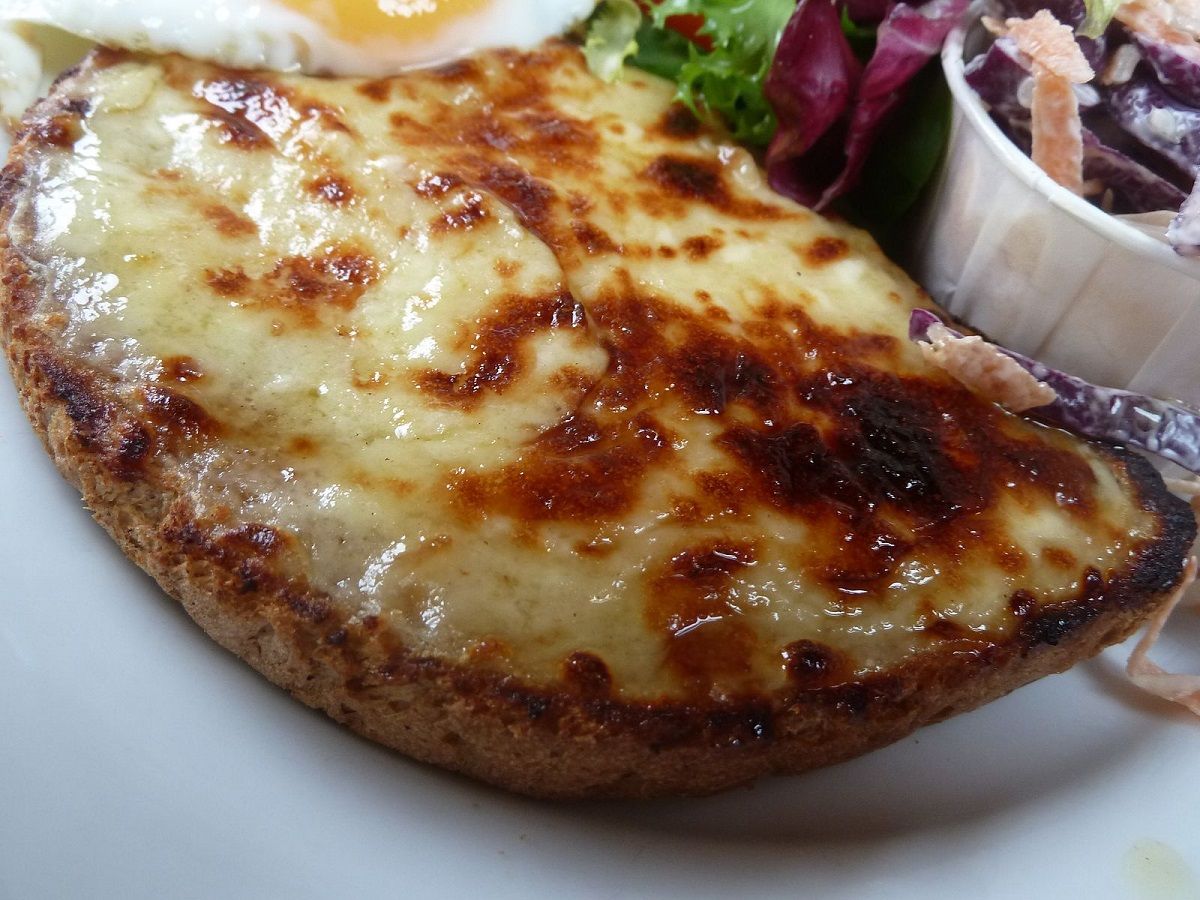One of the more puzzling etymological mysteries in the culinary world is a dual one: how a dish that contains no rabbit meat whatsoever came to be called "Welsh rabbit," and how that name mutated into the even more improbable form of 'Welsh rarebit.'
Welsh rabbit/rarebit is simply toasted bread topped with a melted cheese mixture. It contains no meat whatsoever, rabbit or otherwise. So, why is it known as "Welsh rabbit," especially given that no particular evidence suggests that cheese on toast originated with Welsh cuisine?
No one knows the origins of the name for sure, although the most commonly advanced theory is that was a derogatory English term poking fun at the Welsh, supposedly because they were so impoverished that they couldn't afford even lowly rabbit meat for food, or they were so culturally uncivilized that they thought eating cheese on toast was just as good as having rabbit, i.e., "only people as poor and stupid as the Welsh would eat cheese and call it rabbit," or "the closest thing to rabbit the Welsh could afford was melted cheese on toast."
Much debate has taken place over whether "Welsh rarebit" was a corruption of "Welsh rabbit" or whether it was the other way around. Linguistic evidence suggests the former, as the Oxford English Dictionary records the first known print use of "Welsh rabbit" as occurring in 1725, while the "rarebit" form isn't known to have shown up in print until 1781.
How the name transitioned from Welsh "rabbit" to "rarebit" is also a matter of speculation rather than fact. Various theories claim that the Welsh (or possibly the English) altered the name to eradicate its implied slur, or that restaurateurs altered it either to avoid confusing unfamiliar customers or to create an exotic-sounding menu item that could be sold to such customers for a premium price.
How such a humble dish — one which is consumed in many parts of the world— came to be named for the Welsh is yet another mystery. It may be, as suggested in one trivia book published in 1849, that the association was simply due to a common practice of foodstuffs' being dubbed with geographic names referencing places where they were especially popular or particularly well known:
Welsh Rabbit is not, as many persons suppose, a corruption of Welsh rare-bit: toasted cheese is a favorite dish in Wales, and universal, almost to nationality: it receives its name on the same principle that sturgeons are called “Albany beef,” from the abundant display of that fish in the Albany market. Sherris sack is called “Bristol milk,” according to Ray, “because it is the entertainment of course, which the Bristolians present to strangers when first visiting their city.” Watches were originally called “Nuremburgh eggs,” they having been invented in that place, and at first were of an oval shape; and in Brady’s Varieties of Literature, we find that the term “Scotch warming-pan” arose form the well-known story of a gentleman traveling in Scotland, who desiring to have his bed warmed, the servant-maid immediately undressed herself and lay down in it for a while. The French translator of one of Scott’s novels, renders “a Welsh-rabbit” literally as “un lapin du pays de Galles,” or, a rabbit of Wales, and then tells his readers in a note, that the lapins or rabbits of Wales have a very superior flavor, which causes them to be of great request in England.


